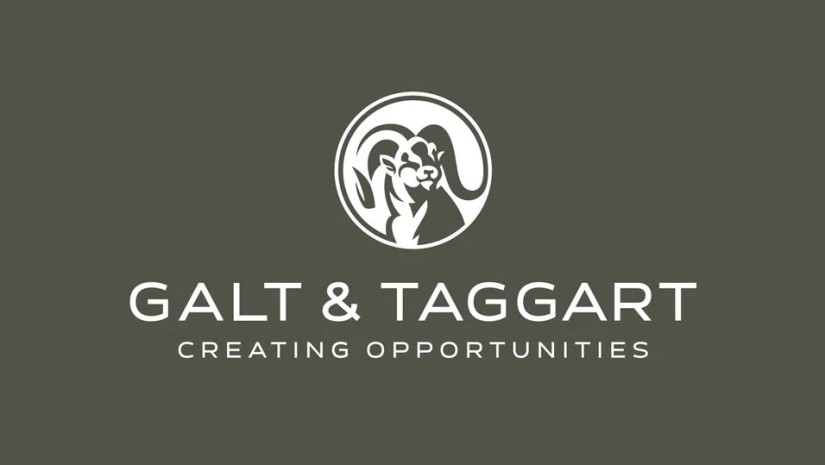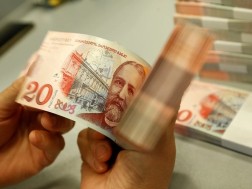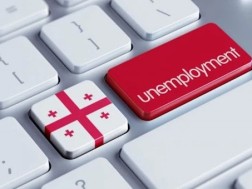Galt&Taggart published Global Markets Weekly Update. According to the document:
USA
Casino Stocks Advance:
hares of Wynn Resorts (WYNN) and Las Vegas Sands (LVS) rallied on Friday, fueled by optimism surrounding China's recently announced stimulus package, which aims to boost economic growth toward its 5% target for 2024. This stimulus, including interest rate cuts and liquidity injections by China's central bank, is expected to positively impact Macau's casino business. Anticipation of further economic measures before China's National Day holiday on October 1 has further strengthened investor confidence in these casino operators. Wynn Resorts gained additional momentum after Morgan Stanley upgraded its stock rating to "overweight," citing a favorable risk-reward scenario. The bank highlighted Wynn's low valuation, growth opportunities in the UAE, and potential in Macau, raising the stock's price target by $7 to $104.1. at the same time Marriott International, Inc. and Sands China Ltd. (suvsidiary of LVS) are set to redefine luxury in Macao with the signing of an agreement to debut The Luxury Collection brand to the market. Anticipated to open in January 2025, Londoner Grand, a Luxury Collection Hotel, Macao is poised to cater to the world's discerning travelers, blending the brand's authentic take on luxury with the city's local charm to provide a unique and enriching travel experience. WYNN is up 22% during the week and LVS stock is up 21% during the same period.
The week Ahead:
Investors will have their hands full next week with the release of the U.S. jobs report for September on Friday. Economists expect 140K job additions for the month and for the unemployment rate to keep steady at 4.2%.
The consumer sector will remain the in the spotlight, with the earnings calendar headlined by Nike's (NKE) earnings report on October 1. Carnival (CCL), Levi Strauss (LEVI), and Constellation Brands (STZ) also report.
Europe
Eurozone PMI falls as Olympics effect fades; UK expands
In local currency terms, the pan-European STOXX Europe 600 Index rebounded, ending 2.69% higher as evidence of slowing business activity spurred hopes for interest rate cuts. China also unveiled a package of measures to stimulate its economy, helping to lift sentiment. Major stock indexes also rose. Germany’s DAX surged 4.03%, France’s CAC 40 Index climbed 3.89, and Italy’s FTSE MIB added 2.86%.
The UK’s FTSE 100 Index advanced 1.10%.
Business activity in the eurozone unexpectedly shrank in September due to a marked fall in new orders, according to purchasing managers’ indexes (PMIs) compiled by S&P Global. An initial reading of the seasonally adjusted HCOB Eurozone Composite PMI Output Index fell to 48.9 from 51.0 in August. (A PMI reading less than 50 indicates a contraction.) Services activity came close to stalling as the boost from the Paris Olympics faded, while manufacturing contracted at a faster pace. German business activity declined the most in seven months, signaling that the economy is likely on track for a second quarterly drop in output.
Meanwhile, UK private sector activity remained in expansionary territory for the 11th month running. The Flash UK PMI Composite Output Index registered 52.9, down from 53.8 in August. Inflation, as measured by prices charged, eased across the economy to a 42-month low.
German business and consumer confidence falls
Business morale worsened in Germany in September, while consumer confidence stabilized at a low level, adding to signs that the economy could have tipped into recession. The ifo Institute said its business climate index dropped to 85.4 in September from 86.6 in August.
Sentiment fell in all sectors of the economy, except construction. Separately, the consumer sentiment index published by GfK and the Nuremberg Institute for Marketing Decisions ticked up to -21.2 going into October versus -21.9 the month before.
Swedish and Swiss central banks cut interest rates
Sweden’s Riksbank cut its policy rate by a quarter of a percentage point to 3.25% and indicated that, if the outlooks for inflation and economic activity remain unchanged, further reductions could be in store for the two remaining Executive Board meetings this year. The Swiss National Bank also lowered borrowing costs by a quarter-point to 1.00%, as expected. Governor Thomas Jordan signaled that the bank was ready to cut interest rates again as inflation pressures had decreased markedly.
Japan
Ishiba picked to become prime minister
Japan’s stock markets gained over the week, with the Nikkei 225 Index rising 5.6% and the broader TOPIX Index up 3.7%. The latest commentary from the Bank of Japan (BoJ), perceived as dovish, weighed on the yen, providing a favorable backdrop. Optimism also came from China’s stimulus announcements detailing various support mechanisms in response to the country’s sluggish economic growth and weak housing market. Given the share of Japanese exports that go to China and Japan’s sensitivity to Chinese purchasing managers’ index and other economic data, the stimulus announcements boosted the many Japanese companies that are direct or indirect China beneficiaries.
After Japan’s markets closed on Friday, Shigeru Ishiba won the Liberal Democratic Party’s leadership contest—he will therefore be Japan’s next prime minister. Ishiba, a former defense minister, defeated Economic Security Minister Sanae Takaichi in a closely contested runoff vote. Ishiba’s monetary policy views are considered slightly hawkish, and the market’s perception is that he is unlikely to resist efforts by the BoJ to normalize monetary policy. His government will continue to take actions to eliminate deflation.
Ueda’s comments point to patient approach in raising rates
In the latest comments following the decision to hold interest rates steady at its September 19–20 meeting, BoJ Governor Kazuo Ueda said that the central bank has enough time to assess market and economic developments before adjusting monetary policy again—suggesting that it is in no rush to raise rates further. The yield on the 10-year Japanese government bond fell to 0.80% from 0.86% at the end of the previous week.
On the economic data front, the Tokyo-area core consumer price index (CPI), considered a leading indicator of nationwide trends, rose 2.0% year on year in September, down from 2.4% in August. The slowdown in consumer inflation was expected and largely attributable to the effect of renewed energy subsidies. Separately, flash PMI data collated by au Jibun Bank showed that Japan’s private sector continued to expand in September, although the rate of growth slowed slightly from August. Business activity in the services segment drove the expansion, while manufacturing output contracted marginally.
















